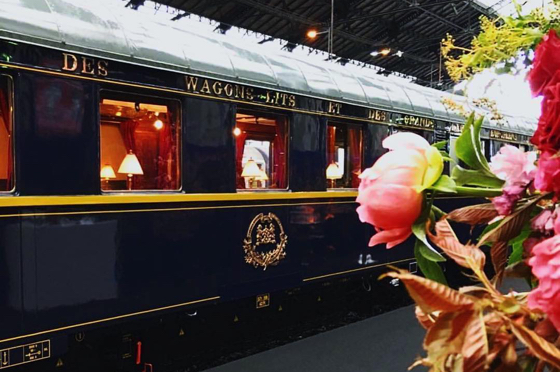AccorHotels, which now has a hand in shaping Orient Express Hotels for the future after buying a 50% stake of the brand from France state-owned rail group SNCF, intends to develop it not as a soft brand but “a real brand with a high-end, boutique positioning.”
Chairman and CEO Sebastien Bazin said this last week when queried on the sidelines of the 30th anniversary celebrations of Accor partnership with the Ambassador Hotel Group of Korea in Seoul.
Bazin also suggested that he was looking at a possible extension of the brand beyond hotels into adjacent ancillaries such as “furniture, silverware, luggage.”
“Orient Express is an extraordinary brand. Its DNA is elegant chic luxury, a mix between [the romance of] train travel and hospitality, and there is food experience as well, so within its existence and history, you have everything that matters in hospitality.
“The brand [Orient Express Hotels] was extremely well operated by [now Belmond]. So when the French railways [SNCF] inherited back the brand, I was extremely adamant to find a solution for Accor to bring back the brand to the hospitality sector. That’s why we built that partnership with the French railways,” Bazin said.
Orient Express Hotels was rebranded to Belmond in March 2014. According to a source, huge license fees to use the brand name was the key reason.
That Accor jumped in at the opportunity to buy was no surprise, considering it’s a French brand, and one with a past connection through its Pullman brand. Accor had bought a minority stake in the Pullman Company (which launched the first sleeper trains in the U.S.) in Europe, the Compagnie Internationale des Wagons-Lits, which gave birth to Pullman Hotels.
Since 1997, SNCF has been involved in restoring vintage carriages dating from the 1920s known as the Pullman-Orient Express. Accor also hopes that these cars could be used as exceptional venues for special events, which may be held in collaboration with its other businesses such as Potel & Chabot, Noctis and John Paul.
Bazin was extremely protective of Orient Express. “Because that brand kept its purity, the one thing we have to do is to be very prudent and not go too far in brand positioning,” he said.
“Orient Express is linked to many countries – Paris, Istanbul, Vienna, Bucharest, Budapest and so on — but it does not belong to any place in the world,” Bazin continued. “So we’re going to start with (hotels) within the original Orient Express journey between western and central Europe. Only a few hotels deserve Orient Express as a brand, so we’ll be very selective. We have plenty of time.”
On brand extension, Bazin mused: “Orient Express has also something that is incredible that it can also be incorporated into furniture, silverware, luggage. There are tremendous things you can do but please, protect it.”

Another unique Accor JV
Meanwhile, Accor and Korea’s Ambassador Group look back on their 30-year partnership with a sense of wonder. A big risk has paid off and two companies that could not be more different in size, organization and culture have been able to collaborate for three decades.
Ambassador, which forayed into hotels in Korea in 1955, made a strategic decision to be different and partner with Accor in 1987 – when everyone else was going with American hotel operators, recounted its Chairman Jungho Suh.
“It is destiny. The needs of both groups coincided,” Suh said. “Accor is a global organization, and though its leadership changed over the years, we always had the performance…we were both ambitious.”
Suh added: “For my whole life, I believe in human relationships. As a businessman, you can partner the leader of another business, and your employees. The most important thing in this relationship is trust. If you perform your job faithfully, give consideration to your partner, understand your partner, it will be a win-win.”
Bazin said Accor has 20- to 25-year relationships but Ambassador is the only one in terms of “a true family joint venture with Accor in a dedicated country.”
“It usually does not exist because it fails miserably. Too much of a size difference — a big institution and a small family,” he said.
“The one keyword the chairman repeatedly used is trust. Since 1987 we both have added two words: respect for each other and admiration for what the other has done,” Bazin said. “As big as we are, there are many things we don’t know about Korea. We would never have been able to achieve the hospitality leadership in Korea without the chairman and the family.”
The Accor-Ambassador Korea joint venture today manages 23 hotels in Korea and is set to manage 32 hotels in the country by 2021. Since 2005, it has been managing other people’s assets. Its latest management contract is a 1,600-room ‘lifestyle hotelplex’ in Seoul with four Accor brands – Grand Mercure, Novotel Suites, Novotel and Ibis Styles – under one roof. The developer is KOSDAQ-listed Seobu T&D Corp.
